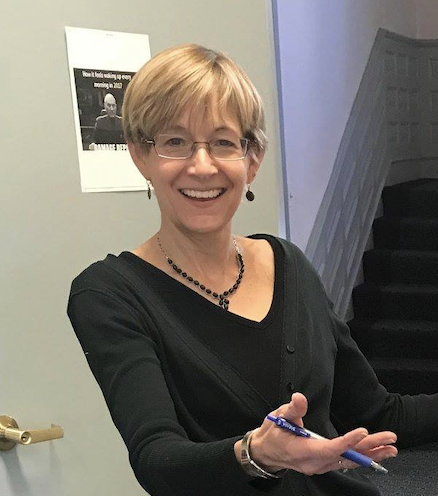
Angela Bradbery
Angela Bradbery became the Frank Karel Endowed Chair in Public Interest Communications in August 2020. Angela had been with Public Citizen, one of the most effective public interest organizations in the country, since 1999 and has been Director of Communications since 2006. Her responsibilities included developing and implementing communication strategies at the national, state and local levels and leading communication planning and implementation for coalitions of allied public interest organizations.
In 2003, Bradbery co-founded Smokefree DC, a nonprofit, all-volunteer membership organization that achieved the passage of landmark smoke-free workplace legislation in Washington, D.C., in 2006. As part of that effort, Bradbery mobilized grassroots activists, did educational and media outreach and lobbied elected officials.
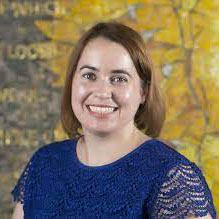
Lisa Fazio
Lisa Fazio, Ph.D., is an Assistant Professor of Psychology at Vanderbilt University. Lisa won the 2017 frank Prize for Research in Public Interest Communications for her paper Knowledge Does Not Protect Against Illusory Truth. Fazio and her colleagues found that repetition plays a critical role in remembering false information. Just hearing incorrect information more than once is likely to be remembered as true. Lisa’s research focuses on how people learn true and false information from the world around them and how to correct errors in people’s knowledge. Her research informs basic theories about learning and memory, while also having clear applications for practitioners, such as journalists and teachers. Her research area is in cognition and cognitive neuroscience as well as developmental science. She’s written on how to recognize misleading COVID-19 information on social media as well as how to avoid knowledge neglect and spreading misinformation.
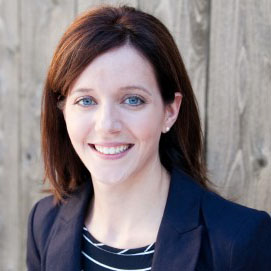
Brooke Foucault-Welles
Ryan Gallagher, Elizabeth Stowell, Andrea Parker and Brooke Foucault Welles address an important question in social change communications: how do individual actions create collective change? By focusing on the online narratives, public disclosures and meaningful policy changes around #MeToo, their findings challenge the dominant narratives about “slacktivism” and provide a blueprint for constructing hashtag social movements going forward. Brooke Foucault Welles will discuss their research at frank. Foucault Welles is an associate professor in the department of Communication Studies, core faculty of the Network Science Institute, and Director of the Communication Media and Marginalization (CoMM) Lab at Northeastern University and studies how online communication networks enable and constrain behavior, with particular emphasis on how these networks mitigate and enhance marginalization. See paper.
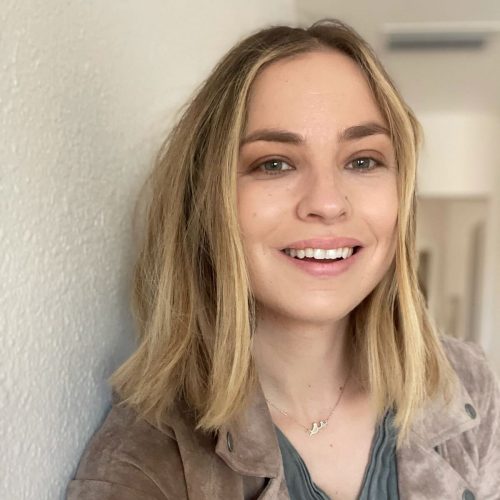
Annie Neimand
Annie Neimand, Ph.D., works with social change organizations, scientists, storytellers and activists to apply the science of how people think and act to storytelling and communication strategy. She translates insights from behavioral, cognitive and social science for social impact campaigns. She works with organizations to experiment with and innovate campaign strategy through measurement, evaluation and learning. Organizations include Participant Media, the United Nations High Commissioner for Refugees, the United States Defense Department, the Bill and Melinda Gates Foundation, the Robert Wood Johnson Foundation, the Institute of Medicine at the National Academy of Sciences, National Institute of Food and Agriculture, and public interest communications agencies.
Annie’s work is regularly featured in Stanford Social Innovation Review.Currently, Annie is exploring the science of narrative change, how to build movement networks and methods to integrate systems thinking and human-centered design for behavior change strategy.
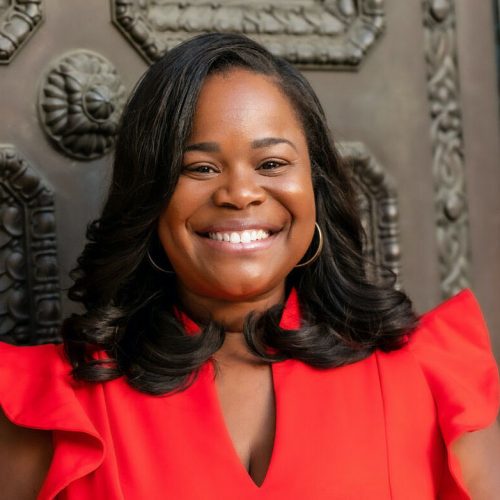
Allissa V. Richardson
Dr. Allissa V. Richardson is an Assistant Professor of Journalism at the University of Southern California’s Annenberg School. She researches how African Americans use mobile and social media to produce innovative forms of journalism — especially in times of crisis. She believes in empowering marginalized communities to tell their own stories, using cutting-edge technologies. AAs a frank 2021 Research Prize finalist, her paper explores the new communication styles of Black women leaders of the anti-police brutality movement and their dismantling of the perceived respectable, polite African American protest model. Based on a series of interviews, the paper reveals the women’s keen textual and visual dismantling of Black respectability politics that led to a mediated hyper-visibility that their forebearers never experienced. The women share the advantages and disadvantages of this approach, and weigh in on the sustainability of their communication methods for future Black social movements. See paper.
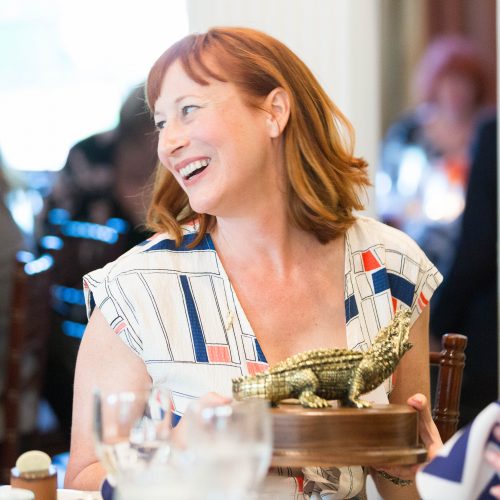
Ann Searight Christiano
Ann Christiano is the founder and Director of the Center for Public Interest Communications and a clinical professor in the department of public relations. She is developing a first-ever curriculum in public interest communications, connecting practitioners and scholars who are already working in the field, and nurturing and sharing research that can advance this newly emerging academic discipline. Public Interest Communications uses science-driven strategic communications and storytelling to advance positive social change. She completed a 10-year term as the inaugural Karel Chair in Public Interest Communications in May 2020. Before coming to the University of Florida in 2010, Ann was a senior communications officer for the Robert Wood Johnson Foundation, where she directed communications efforts for programs that address the social actors like housing, education and mental health that drive health and well being.
Ann’s writing has appeared in the Stanford Social Innovation Review and she was the University of Florida Teacher of the Year in 2014.
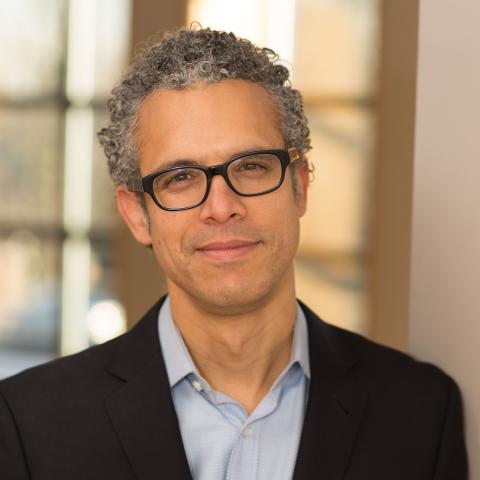
Omar Wasow
Omar Wasow, Ph.D. is an Assistant Professor in Princeton’s Department of Politics. His research focuses on race, politics and statistical methods. His paper on the political consequences of the 1960s civil rights movement was published in the American Political Science Review. His co-authored work on estimating causal effects of race was published in the Annual Review of Political Science. Prior to joining the academy, Omar co-founded BlackPlanet.com, an early leading social network, and was a regular technology analyst on radio and television. He received a PhD in African American studies, an MA in Government and an MA in Statistics from Harvard University. As a frank research prize finalist, Omar Wasow’s paper asks the question: How do stigmatized minorities advance agendas when confronted with hostile majorities? Marginal groups around the world confront nearly impossible choices about how to advance interests against daunting odds. This work helps inform movement leaders about the types of tactics that can overcome these imbalances in power to challenge unjust systems, demonstrating that protests do work and violent and nonviolent actions by activists and police do influence media, elites, public opinion and voters. Wasow is an assistant professor of politics at Princeton. See paper.
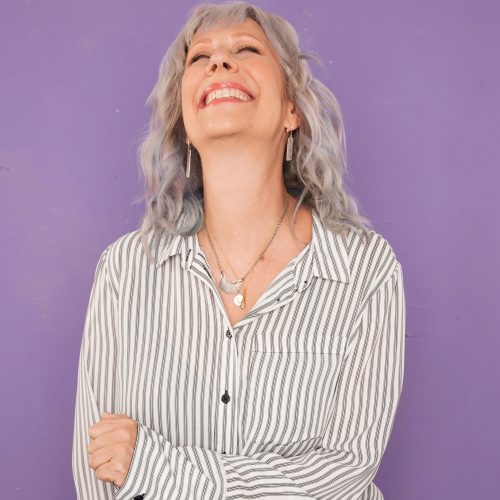
Lizz Winstead
Comedian and ActivistLizz Winstead has built her amazing career hilariously responding to the world. As co-creator and head writer of Comedy Central’s “The Daily Show,” Winstead has forever changed the way people get their news. As co-founder of Air America Radio, she hosted her own show called “Unfiltered”, sharing the mic every morning with the amazing Rachel Maddow and Hip Hop legend, Chuck D. As a stand-up she continues to tour, bringing her rapid response brand of comedy to theatres across the country and in 2014, was initiated into the Harvard Lampoon.
Winstead has now taken her satirical brilliance one step further, combining it with her passion for reproductive rights to form her latest passion project, Abortion Access Front, a non profit organization made up of comedians, writers and producers who create videos that use humor and outrage to expose sexist, anti choice politicians in all 50 state legislatures. AAF also spends 4 months out of the year doing shows across the country and providing support to independent abortion providers and local activists helping them to remove the stigma around abortion.
In addition to performing and her activism, Winstead authored Lizz Free Or Die, a funny and touching book of personal essays, that Elle magazine called, “Sharply witty and iconoclastic”
Winstead’s talents as a comedian and media visionary have been recognized by The New York Times, The Washington Post, and Entertainment Weekly’s 100 Most Creative People issue among other print media. Winstead continues to appear on Comedy Central, HBO’s Real Time With Bill Maher and NPR, as well as her regular commentary on MSNBC.
Winstead has a lot to say about politics and current events, and when she says it, it is always insightful and hilarious!
